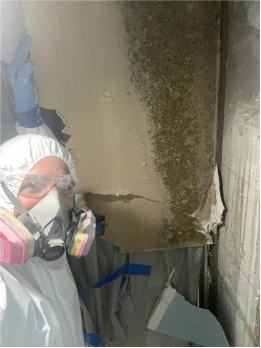
Mold is more than just an unsightly nuisance—it can be a serious health hazard, especially for Orlando residents who live in a humid and warm climate that encourages mold growth. Mold exposure can lead to respiratory problems, skin irritation, and even more severe health complications for people with asthma, allergies, or weakened immune systems. Prioritizing safety during mold cleanup is essential to protect both your health and your property effectively.
Here, we’ll explore the vital steps Orlando residents should take to stay safe during mold remediation.
Understanding the Risks of Mold in Orlando
Orlando’s subtropical climate creates a perfect environment for mold to thrive. With frequent rainstorms, high humidity levels, and warm temperatures, mold can develop quickly in homes and buildings. Mold spores, which are microscopic and airborne, can easily spread throughout your property, leading to widespread contamination.
In Orlando, mold isn’t just limited to damp basements or bathrooms; it can grow in areas affected by roof leaks, HVAC systems, and even within the walls of your home. As a resident, understanding the local environmental factors that contribute to mold growth helps you become more proactive in preventing and addressing this issue.
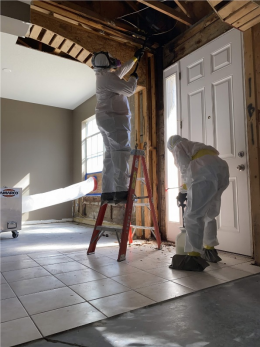
Key Safety Measures to Follow During Mold Cleanup
When dealing with mold cleanup, safety should be your top priority. Here are essential safety measures to follow to ensure that your health and property are protected:
1. Wear Proper Protective Gear
Mold spores can enter your respiratory system and cause various health issues. Before starting any mold cleanup, ensure you have the right protective gear, including:
· N95 Respirator Mask: This will prevent you from inhaling mold spores that can trigger respiratory problems.
· Gloves: Use long, non-porous gloves made from rubber, neoprene, or polyurethane to protect your hands from coming into direct contact with mold.
· Goggles: Protect your eyes from mold spores, dust, and debris by wearing safety goggles without ventilation holes.
· Disposable Clothing: If possible, wear disposable coveralls that you can remove and discard after cleanup to avoid contaminating other areas.
Orlando’s mold cleanup experts often recommend using specialized protective gear to ensure maximum safety, especially when dealing with extensive mold infestations.
2. Isolate the Affected Area
During mold cleanup, preventing the spread of mold spores to other areas of your home is crucial. Before starting, isolate the affected area by closing doors and using plastic sheeting to cover doorways, vents, and openings. You can also use tape to seal off any gaps.
In Orlando’s humid climate, airborne spores can quickly spread throughout your home if not contained properly. To further reduce the spread, consider using an air purifier with a HEPA filter to trap mold spores and improve air quality in the surrounding areas.
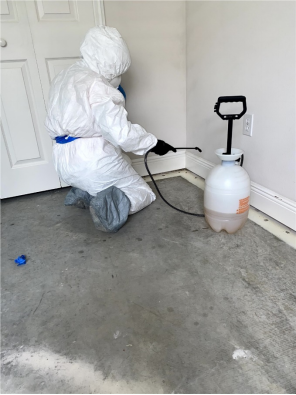
3. Use the Right Cleaning Solutions
Not all cleaning solutions are effective against mold. While you may be tempted to grab the nearest household cleaner, it’s essential to use products specifically designed for mold remediation. Common cleaning agents include:
· Commercial Mold Removers: Available in most home improvement stores in Orlando, these are formulated to kill mold and prevent regrowth.
· Bleach Solutions: A mix of one cup of bleach to one gallon of water can be used on non-porous surfaces. However, bleach should not be used on porous materials like wood or drywall, as it cannot penetrate deep enough to remove the mold entirely.
· White Vinegar: Vinegar is a natural alternative that can kill 82% of mold species. Spray it undiluted onto the affected area and allow it to sit for an hour before wiping it off.
Remember that when using chemical cleaners, ventilation is essential. Open windows and doors to ensure proper airflow, and use fans to help dissipate fumes.
4. Avoid DIY Mold Cleanup for Large Areas
While homeowners can often handle small mold outbreaks (under 10 square feet) themselves, large-scale infestations require professional help. According to the Environmental Protection Agency (EPA), mold cleanup for areas larger than 10 square feet should be left to professionals who have the expertise and equipment to handle the situation safely.
Orlando residents should also consider the state’s mold licensing regulations. Florida requires mold assessors and remediators to be licensed, ensuring that they meet specific standards of practice. Hiring a licensed professional in Orlando ensures that the job is done correctly and safely.
5. Dispose of Contaminated Materials Properly
Once you’ve cleaned or removed moldy items, it's essential to dispose of them properly to prevent contamination. Place all contaminated materials, such as carpets, insulation, or drywall, in heavy-duty garbage bags and seal them tightly. Dispose of them according to Orlando’s waste management guidelines.
For larger mold cleanup projects, renting a dumpster might be necessary to manage the waste efficiently. Contact local waste management services in Orlando to ensure proper disposal of mold-contaminated materials.
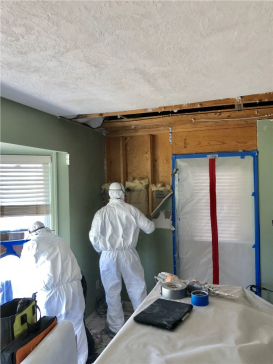
6. Ventilate and Dehumidify
After mold cleanup, it's crucial to address the conditions that led to mold growth in the first place. Orlando’s high humidity levels make proper ventilation and dehumidification essential steps in preventing mold from returning.
· Use Dehumidifiers: Invest in a high-quality dehumidifier to keep humidity levels in your home below 60%. This will help prevent mold from growing again.
· Ventilate Damp Areas: Ensure proper ventilation in areas prone to moisture, such as bathrooms, kitchens, and basements. Install exhaust fans and make sure they vent outside your home.
Regularly inspect your HVAC system to ensure it's functioning correctly and isn’t contributing to excess moisture.
7. Monitor Your Health
After completing mold cleanup, pay attention to your health and that of your family members. If anyone experiences persistent respiratory issues, headaches, or skin irritation, it could be a sign that mold is still present, or that mold spores have spread.
If symptoms persist, consult a healthcare professional and consider bringing in a mold remediation expert to reassess your home.
If you're dealing with mold in your Orlando home, don't take risks with your health and safety. At Flood Pros USA, our certified professionals specialize in mold removal and mold cleanup throughout Orlando. Whether you’re facing a minor infestation or widespread contamination, we provide thorough mold remediation tailored to the unique needs of your home. We also offer comprehensive water damage restoration services to address the root cause of mold growth.
Tags
Subscribe to Flood Pros USA's Blog

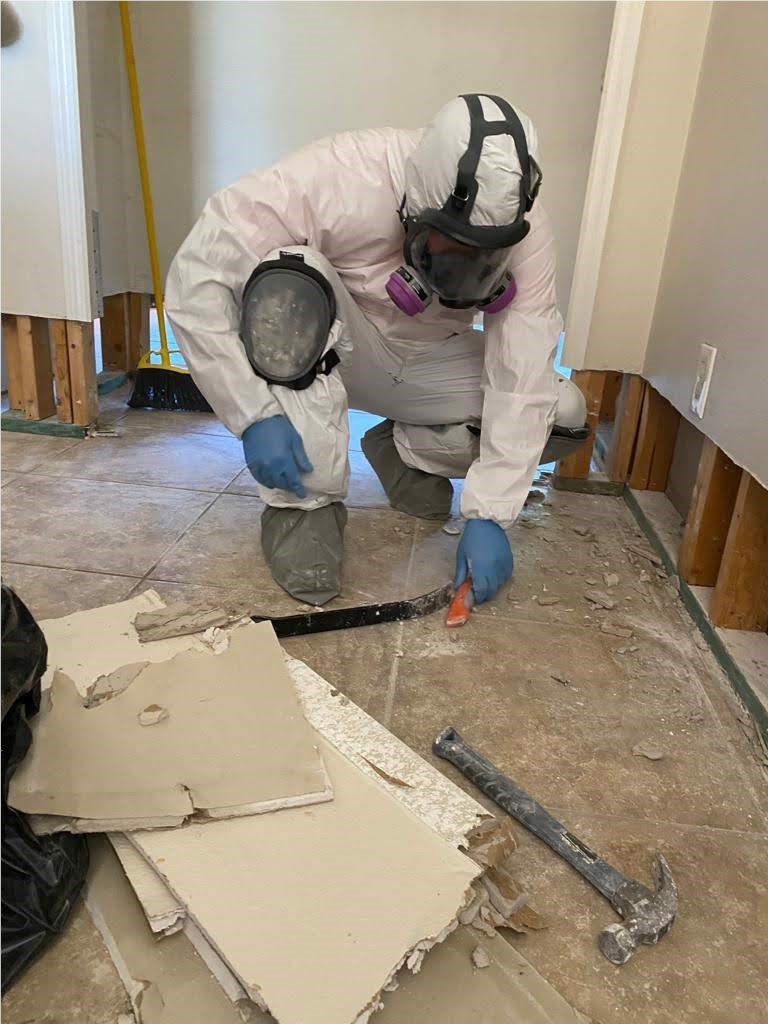
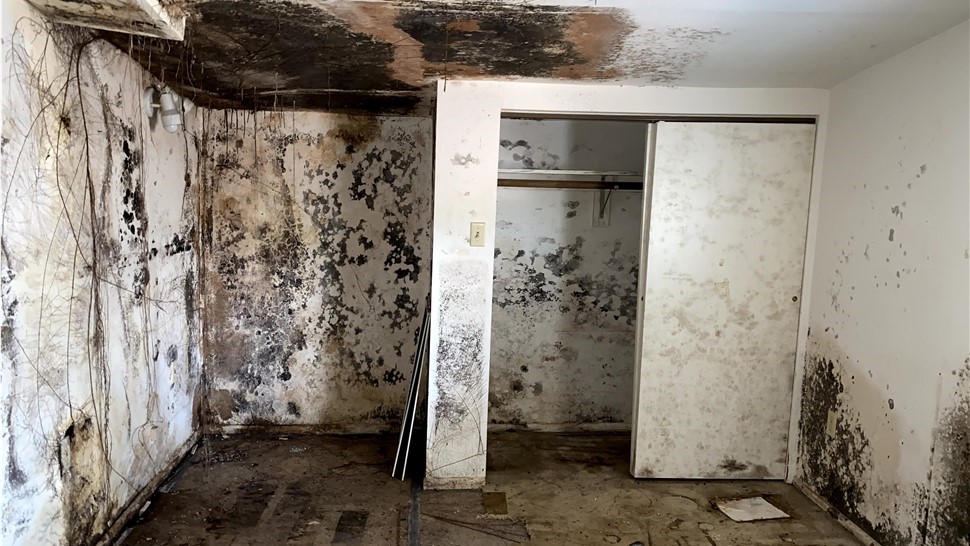
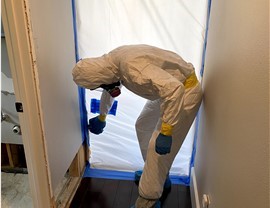
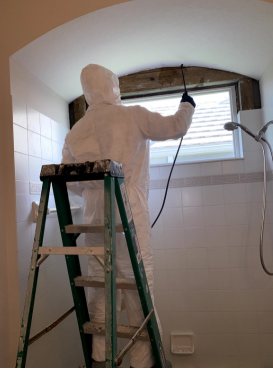
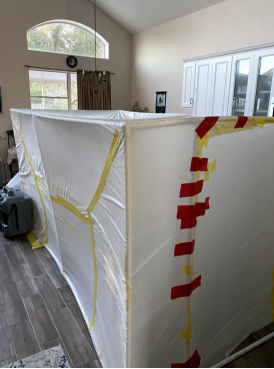

Comments